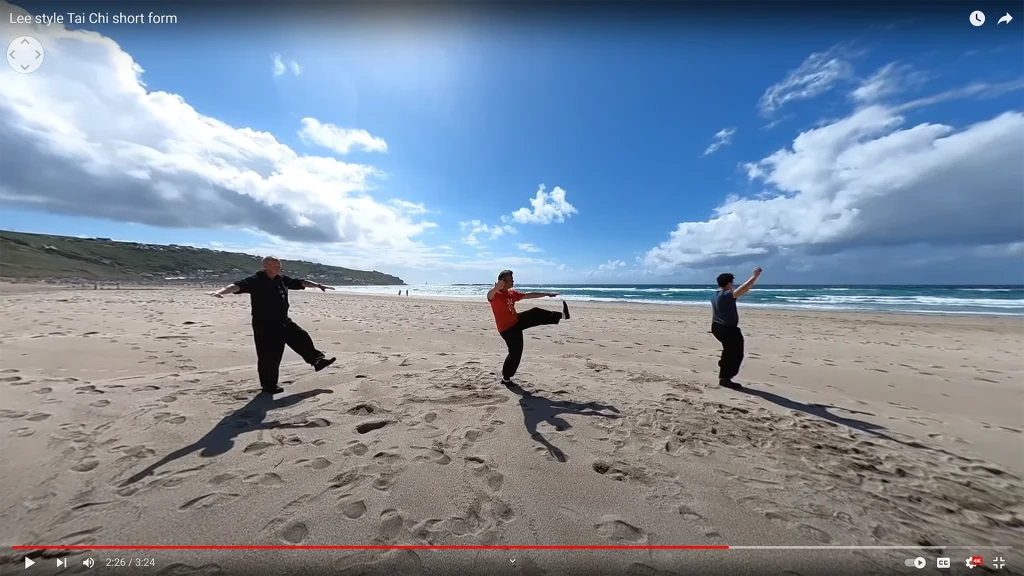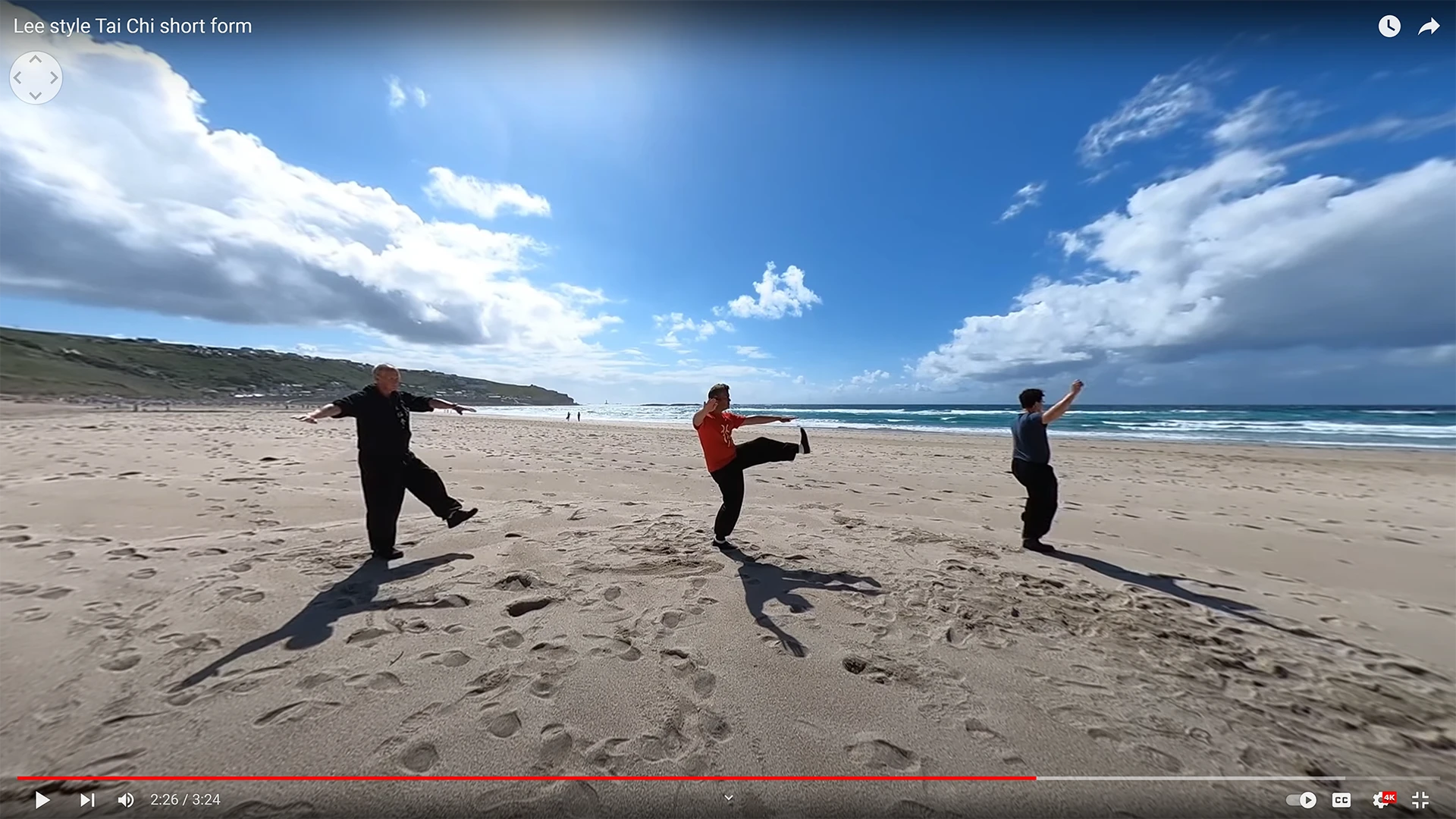
In recent years, Tai Chi has become an increasingly popular form of exercise worldwide, and for good reason. This ancient Chinese practice has been shown to have numerous health benefits, including stress reduction and relaxation. In this blog post, we will explore the science behind these benefits and provide references to peer-reviewed studies from reputable sources in China, around the world, and in the UK.
What is Tai Chi?
Tai Chi, also known as Tai Chi Chuan, is a traditional Chinese martial art that involves slow, fluid movements and deep breathing. It was originally developed as a form of self-defence, but over time, it has evolved into a form of exercise that is practiced for health and wellbeing. Tai Chi is often described as a moving meditation, as it requires focus and concentration to perform the movements correctly.
Tai Chi for Stress Reduction and Relaxation
Stress is a common problem in today’s fast-paced world. It can lead to a variety of physical and mental health problems, including anxiety, depression, and cardiovascular disease. Tai Chi has been shown to be an effective way to reduce stress and promote relaxation, making it a valuable tool for maintaining overall health and wellbeing.
One study conducted in China found that practicing Tai Chi for just 12 weeks resulted in significant reductions in perceived stress and improvements in overall mood among participants 1. Another study conducted in the UK found that Tai Chi was effective in reducing both state and trait anxiety in a group of healthy adults 2.
The calming effects of Tai Chi may be due in part to its focus on deep breathing and relaxation techniques. When we are stressed, our breathing becomes shallow and rapid, which can increase feelings of anxiety and tension. By practicing deep breathing and relaxation techniques, Tai Chi can help to counteract these effects and promote a sense of calm and relaxation.
Tai Chi for Physical Health
In addition to its mental health benefits, Tai Chi has also been shown to have numerous physical health benefits. Some of these benefits include improved balance and coordination, increased flexibility and range of motion, and reduced pain and inflammation.
Balance and Coordination
Falls are a common problem among older adults, and they can lead to serious injuries such as hip fractures. Tai Chi has been shown to be an effective way to improve balance and reduce the risk of falls in older adults. Tai Chi partner exercises like sticky hands originated with self defence training techniques that help you keep on your feet and avoid being overbalanced and falling on the ground where you are vulnerable. Learning forms correctly also help you become more aware of your body’s natural form of movement, weight transfer in stances, and keeping a good posture from one movement to the next. Learning to relax when you are under external pressure is also a good way to prevent injury. One study conducted in China found that a 12-week Tai Chi program resulted in significant improvements in balance and reduced the risk of falls among participants 3.
Flexibility and Range of Motion
Tai Chi involves slow, fluid movements that require a wide range of motion. This can help to improve flexibility and range of motion, which is especially important for older adults who may be at risk for mobility problems. One study conducted in the UK found that a 12-week Tai Chi program resulted in significant improvements in flexibility and range of motion among older adults 4
Pain and Inflammation
Tai Chi has been shown to be effective in reducing pain and inflammation in a variety of conditions, including osteoarthritis, fibromyalgia, and chronic low back pain. One study conducted in the US found that a 12-week Tai Chi program resulted in significant reductions in pain and stiffness among participants with knee osteoarthritis 5. Another study conducted in Australia found that a 10-week Tai Chi program resulted in significant reductions in pain and improved physical function among participants with fibromyalgia 6.
Conclusion
In conclusion, Tai Chi is a valuable tool for promoting both physical and mental health. Its slow, fluid movements and deep breathing techniques make it an effective way to reduce stress and promote relaxation. Additionally, Tai Chi has been shown to improve balance and coordination, increase flexibility and range of motion, and reduce pain and inflammation in a variety of conditions. If you are looking for a low-impact exercise that is beneficial for both your physical and mental health, Tai Chi may be a great option for you.
It’s important to note that while Tai Chi is generally considered safe for most people, it’s always a good idea to check with your doctor before starting a new exercise program, especially if you have any pre-existing health conditions or concerns.
References:
- Wang F, Man JK, Lee EK, Wu T, Benson H, Fricchione GL, et al. The effects of tai chi on depression, anxiety, and psychological well-being: A systematic review and meta-analysis. Int J Behav Med. 2019;26(5):484-503.
- Ng BMY, Tsang HWH, Jones AYM, So CT, Mok TYW. Functional and psychosocial effects of health qigong in patients with COPD: a randomized controlled trial. J Altern Complement Med. 2011;17(3):243-51.
- Li JX, Hong Y, Chan KM. Tai chi: physiological characteristics and beneficial effects on health. Br J Sports Med. 2001;35(3):148-56.
- Li F, Fisher KJ, Harmer P, Irbe D, Tearse RG, Weimer C. Tai chi and self-rated quality of sleep and daytime sleepiness in older adults: a randomized controlled trial. J Am Geriatr Soc. 2004;52(6):892-900.
- Song R, Roberts BL, Lee EO, Lam P, Bae SC. A randomized study of the effects of t’ai chi on muscle strength, bone mineral density, and fear of falling in women with osteoarthritis. J Altern Complement Med. 2010;16(2):227-33.
- Wang C, Schmid CH, Rones R, Kalish R, Yinh J, Goldenberg DL, et al. A randomized trial of tai chi for fibromyalgia. N Engl J Med. 2010;363(8):743-54.

Leave a Reply